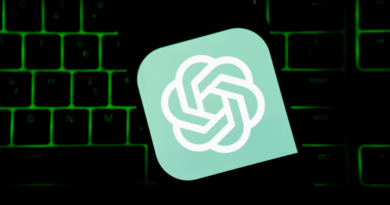Ryan Breslow’s Love health, wellness marketplace goes live

Ryan Breslow, the brazen founder and former CEO of Bolt, told TechCrunch in 2022 that he was leaving the one-click checkout company to start a new company in the health and wellness sector called Love. Well, today is not only Global Love Day, but Love’s launch.
Love previously raised $7.5 million from investors, including Human Capital and MaC Venture Capital, last year. Breslow told TechCrunch the company has since raised another tranche (to bring total funding to just under $20 million) from a group of new and existing investors that had previously backed Bolt, including MaC Venture Capital, Streamlined Ventures and Activant. The fundraising is ongoing, Breslow said.
Breslow told colleague Connie Loizos nine months ago that Love would be a “people-powered pharma” with a decentralized autonomous organization (DAO) infrastructure “where members, who buy ‘Love tokens’ with Ethereum or another reserve currency, can discuss homeopathic and other pharmaceutical alternatives, then vote on which of them should be tested in clinical trials. The DAO will then underwrite the studies.”
Instead, Love launches first as a wellness marketplace that features an initial 200 curated products, like supplements, health testing kits and essential oils, among categories including reducing stress and gut health. Love will earn a commission on the sales.
In discussing that small pivot, Breslow said that he and his founding team, which includes fellow former Bolt colleague Karissa Paddie, chief product and innovation officer, thought about starting with a crowdsourcing way to run token-driven trials and generate data on wellness products, “but we realized that there were a few steps to take place before that.” Also, it’s important to note that Breslow’s involvement in another DAO is now the subject of legal matters, Forbes reported in March.
“There is a lot that could be done,” Breslow said. “There is no aggregator, there is no marketplace in the space, so there’s no basic vetting. We had to do all of these things, including generate consumer interest, build a consumer database and collect data on which products consumers take the most interest in and then piggyback off of that in the future to pursue the earlier crypto ambitions.”
All products on the site pass a set of compliance processes and reviews developed in partnership with clinical trials company Radicle Science. For each item, there will also be two scores: a Love score and a consumer score.
There will also be both online and offline communities to connect people on “healing journeys,” for example, around mental health, and a library of digital content with well-being videos.
Now that the site is live, Love can move forward with expansion plans. It has 700 products vetted and teed up and ready to go. New products and categories will be added in stages and will also be accompanied by educational content, Breslow said. Future iterations of the site will include social commerce.
“I’m really expanding on what a review means and what a testimonial means,” Breslow said. “We will be rewarding users with points for engaging and reporting back to the community about how the product works for them. We are also integrating social commerce elements that are actually quite prevalent in Asia. We’re inspired by that and we believe social commerce can have a great role to play in wellness.”




